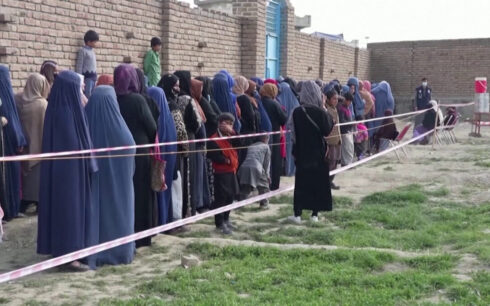A United Nations quarterly report reveals that the Taliban’s revenue for the first four months of the current fiscal year, beginning in March 2024, reached nearly $1 billion (69.7 billion Afghanis), representing an 11 percent increase from the previous year and surpassing their projected target by 3 percent.
The report attributes much of this revenue growth to a 30 percent rise in tax collection by the Taliban’s revenue department. However, customs revenues declined by 2 percent during this period, primarily due to reduced coal export duties and lower tariffs on certain goods.
Afghanistan’s economy, according to the UN, continues to struggle with stagnation and falling prices, signaling weak economic activity and low demand. While this trend persists, it is progressing at a slower rate than in previous periods. The World Bank noted that annual inflation had dropped to negative 5.9 percent by June 2024, reflecting deflationary pressures.
Afghanistan’s trade deficit also widened significantly, reaching $3.9 billion in the first half of 2024—an increase of 34 percent compared with the same period in 2023. The report highlights a 14 percent drop in exports, which fell to $700 million, largely driven by a dramatic 76 percent reduction in coal exports to Pakistan.
In contrast, imports surged by 23 percent in the first half of 2024, totaling $4.6 billion. This increase in imports has further exacerbated the trade imbalance.
On June 10, a Taliban spokesperson announced that Afghanistan maintains trade relations with 80 countries. Despite some fluctuations against the U.S. dollar and regional currencies, the value of the Afghan afghani in July 2024 remained 21.3 percent higher than its value in August 2021, shortly after the Taliban regained power.
The report also notes that domestic revenue grew by 22 percent in the first two months of the fiscal year, reaching approximately $204 million (14.4 billion Afghanis). However, this figure still fell 13 percent short of the Taliban’s revenue target for that period.
Although Taliban approved their annual budget on May 21, the UN report highlights the regime’s reluctance to release detailed information on budget allocation. On August 6, the Taliban’s deputy prime minister for administrative affairs announced tax cuts for gas stations, certain hotels, and restaurants.
Despite these announcements, Taliban has yet to provide comprehensive details regarding their domestic budget and revenue streams, raising concerns about transparency and fiscal management.





